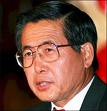Outlawing Amnesty: The Return of Criminal Justice in Transitional Justice Schemes
Until recently, immunity measures like amnesties were considered an acceptable part of promoting transitional justice in countries seeking to address past episodes of systematic violations of human rights. The politically sensitive context of countries seeking to broker peace between oppositional forces often outweighed the moral imperative of punishing those responsible for perpetrating human rights atrocities. Latin America exemplified this trend in the 1980s, while also popularizing truth commissions. The resulting truth v. justice debate eventually sidelined criminal trials in transitional justice schemes, accepting amnesty as lawful. However, growing international human rights and international criminal law jurisprudence began to slowly put in question the legality of amnesties. Recognition of individual rights chipped away at absolute state sovereignty by building recognition of the state duty to investigate, prosecute, and punish those responsible for serious violations of human rights. In addition, the end of the Cold War saw a new reliance on international and hybrid tribunals for criminal prosecutions, a remedy left largely dormant since the Nuremburg trials in 1945. Jurisprudence emanating from these tribunals solidified the principle of individual criminal liability for egregious human rights violations, which previously was thought to trigger only liability based on the theory of the wrongful acts of states.

